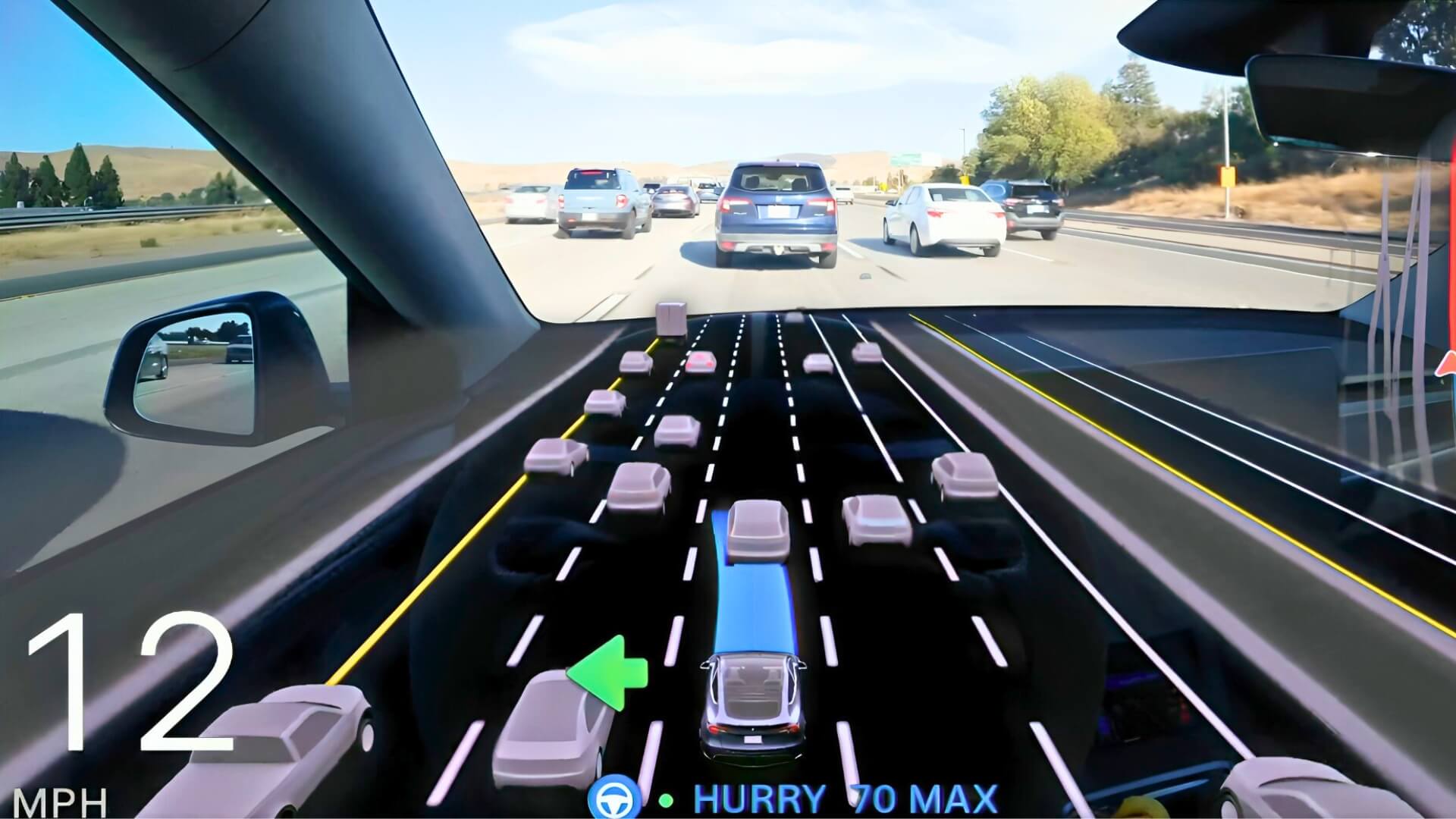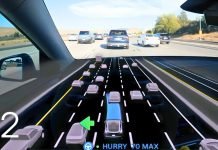Tesla recently rolled out a new Full Self-Driving (FSD) software update v12.5.4.2 which has introduced significant improvements in visualization smoothness particularly for vehicles equipped with Hardware 3 (HW3). Although this update only includes the feature of supervised autonomous driving, it also tries to enhance the visualization of the driving to make it more fluent and smooth.
Of course, these visual improvements are not merely superficial overlays – they are meant to help with the safety of using Teslas and make the entire experience more engaging for drivers by guiding them in the interpretation of the car’s vision of the world.

Tesla FSD v12.5.4.2 Brings Smoother Visualization
The most notable change in the new 12.5.4.2 software update is the visualization smoothness and fluency. For the past four years, owners have complained about the jitteriness in the visualization screen, particularly affecting how vehicles and objects were rendered on the screen.
Still, it seems now this bug is finally fixed with the latest FSD software version. Tesla owners now report smoother visuals, with fewer jitters and improved frame rates. However, these improvements are subtle but significant for a more intuitive, natural experience that brings the FSD experience closer to human-like driving.
UPDATE: FSD v12.5.4.2 (for HW3) includes the smoother visualizations that were first rolled out for FSD v12.5.6 on October 8th. This came after @Tesla_AI fixed a 4yr old bug. The comparison below was captured on a 2019 Model 3 with HW3 w/ Intel CPU. Thank you @aelluswamy @tesla… pic.twitter.com/EJpvTmPJ5m
— TechGeek Tesla 🔋⚡️ (@jonbbc) November 3, 2024
This visual improvement isn’t just for show—it serves a safety and information function for Tesla. The results were that when visuals are clear, smooth rendering of visuals, drivers can better comprehend the action of the vehicle hence the ability to predict the next move by the vehicle. For example, gentler movements enable them to observe when the car intends to weave across or slow down for the objects.
For example, a Twitter user tested the update on his AI3 Model 3 and said that “v12.5.4.2 on my AI3 Model 3 and v12.5.4.1 on my AI3 Model Y and can confirm the visualization is SIGNIFICANTLY smoother with v12.5.4.2. Seems to have the frame rate fixed.”
Tesla Fixes 4-Year-Old Bug Enhancing Visualization Smoothness in FSD v12.5.6
Performance Improvements in v12.5.4.2
While added visualization in v12.5.4.2 may be viewed as an isolated enhancement, it reflects other upgrades in Tesla’s FSD system. With each update, the company improves not just how the system sees reality but also how it interprets and responds to it. The enhanced visuals result from recent optimizations of a Tesla’s neural network and software that affect how the car processes sensor data.
These performance upgrades also enhance manoeuvrability enabling the system to proffer timely visual cues to the driver. Such responsiveness is particularly relevant in highly dynamic conditions, such as getting through intersections or other spaces that are difficult to maneuver within. Due to enhanced and quickly changing information processed and shown, drivers can be in tune with ‘Tesla’s FSD v12.5.4.2 technology.
With each update, Tesla refines not only how the system perceives the world but also how it processes and reacts to it. The improved visuals are likely a result of optimizations in Tesla’s neural network and software infrastructure, designed to interpret sensor data more effectively.
These performance upgrades also improve how quickly the system can react, helping it deliver timely visual feedback to the driver. This responsiveness is especially critical when navigating complex environments, like busy intersections or narrow streets, where sudden decisions are required. By processing and displaying information faster and more fluidly, Tesla’s FSD v12.5.4.2 can help drivers stay in sync with the car’s movements.

















